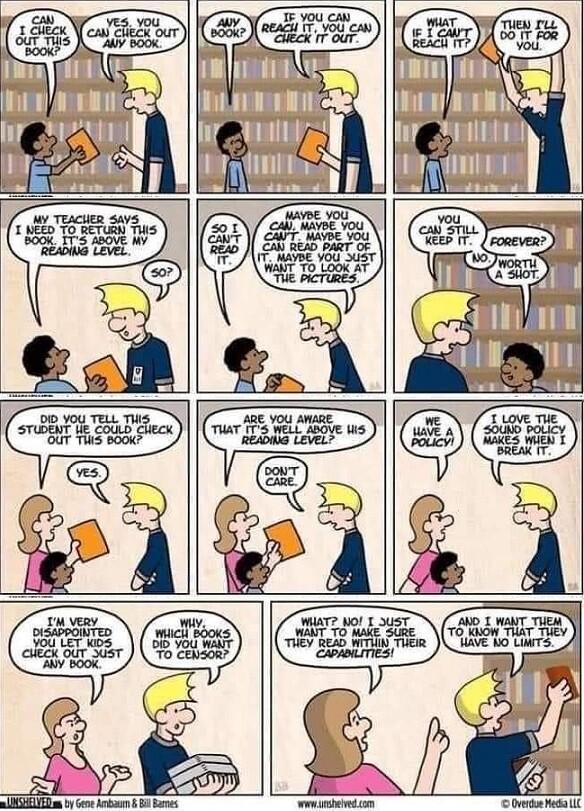One of these is better than the others... you know the one I mean 😁
@bookstodon @books
@worldbuilding @humor@fedigroups.social @humor@lemmy.world @aiop
#SpeculativeFiction #FantasyBooks
#FantasyMemes #Worldbuilding #Fantasy #SciFi #Meme #Memes #Humor #Humour #Funny
#Low #High #Epic #Science #Opera #Hard #CottageCore #SolarPunk #Comedic #Whatever #GiveMeAllYouveGot
#Book #Books #Novel #Novels #Bookstodon #Bookworm #Bookwyrm #BookLove


![Children of strikers in the 1926 Passaic Textile Strike picketing outside the White House, Washington, DC. In overcoats and caps. Their signs read “The truth is on our side,” and “That 10% wage cut just took our milk away.” By News photo, digitized from the original negative by the Library of Congress. Additional digital editing by Tim Davenport for Wikipedia, no copyright claimed. - National Photo Company Collection.Reproduction Number: LC-USZ62-56286 (b&w film copy neg.)Rights Advisory: No known restrictions on publication.Call Number: LOT 12298, v. 2 <item> [P&P], Public Domain, https://commons.wikimedia.org/w/index.php?curid=90051323](https://kolektiva.social/system/media_attachments/files/115/956/673/985/206/552/original/209faf472e9a273f.jpg)



